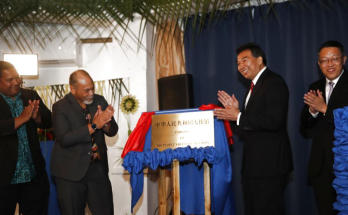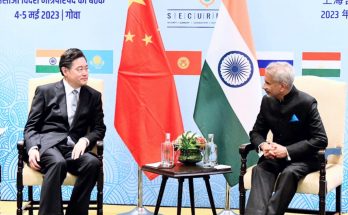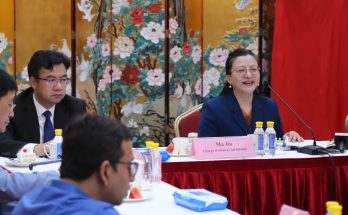 In an atmosphere of mounting tensions with China, Southeast Asian countries have considerably expanded their military budgets develop their own defense industries. Asean countries are channelizing their military budgets to the manufacturing of indigenous artillery in a move to decrease dependence on big US and European arms suppliers.
In an atmosphere of mounting tensions with China, Southeast Asian countries have considerably expanded their military budgets develop their own defense industries. Asean countries are channelizing their military budgets to the manufacturing of indigenous artillery in a move to decrease dependence on big US and European arms suppliers.
Military spending in Southeast Asia grew by 5 per cent, to $35.9 billion in 2013, according to the Stockholm International Peace Research Institute (SIPRI). The budget is expected to expand to $40 billion by 2016, which is 10 per cent higher than 2013, and more than double the expenditure since 1992.
While defence procurement in countries like Indonesia, Malaysia and Thailand is still dominated by top arms dealers such as Airbus Group NV and Lockheed Martin Corp, these countries are nevertheless encouraging domestic defense firms to manufacture hardware locally. Southeast Asia has become the world’s second largest importer of military equipment and technology. A domestic defense industry is imperative to the long-term economic and security goals of a country. With the exacerbation of tensions over the disputed South China Sea, increased military spending will be important to retain the region’s military balance.
China’s military spending increased to around $145 billion last year, according to US estimates, and its increasing assertiveness in the South China Sea disputes has alarmed security officials in Southeast Asian countries.
The recent defense deals by Southeast Asian countries are signs of a growing trend towards local manufacturing of defense equipment. For instance, Malaysia’s shipbuilding-to-weaponry group Boustead Heavy Industries Corporation is working with French state-controlled naval contractors, on a $2.8 billion contract, for six coastal combat ships for Malaysia’s navy – to be built locally.
“We expect to achieve well over 60 per cent in terms of local content and value, and see considerable transfer of technology to ourselves as well as local vendors and suppliers who we work with and cultivate,” Ahmad Ramli Mohd. Nor, executive deputy chairman and managing director of Boustead Heavy, told Reuters. “Importantly, we will already have IP (intellectual property) rights for the first generation of offshore patrol vessels, and this can provide a platform to tap the international market,” he added.
Such partnerships have enabled countries to develop their domestic defense industries over time and are known as “defence offset” deals. Turkey, for example, has successfully used defence offsets to nurture its domestic industry, whose companies now produce half the country’s military equipment.
Similarly, Indonesia has also signed a contract of $164 million for air defense systems with France’s Thales SA, on the condition that Thales must transfer radar manufacturing skills and knowledge to state-owned Indonesian electronics firm PT LEN Industries. Indonesia has also more than doubled its defense expenditure in the last five years. Singapore is another example: last year, Singapore stated that it would buy two submarines from ThyssenKrupp Marine Systems in Germany, provided the local industry is involved in developing combat systems.
ASEAN members have recently stopped citing China as the reason for upgrading their military capabilities. In the ASEAN meeting last week, foreign ministers appealed for “self-restraint” in the face of heightened tensions with China.
Author Profile
- India Writes Network (www.indiawrites.org) is an emerging think tank and a media-publishing company focused on international affairs & the India Story. Centre for Global India Insights is the research arm of India Writes Network. To subscribe to India and the World, write to editor@indiawrites.org. A venture of TGII Media Private Limited, a leading media, publishing and consultancy company, IWN has carved a niche for balanced and exhaustive reporting and analysis of international affairs. Eminent personalities, politicians, diplomats, authors, strategy gurus and news-makers have contributed to India Writes Network, as also “India and the World,” a magazine focused on global affairs.
Latest entries
 DiplomacyApril 23, 2024Resetting West Asia, re-booting the world, but not fast enough: T.S. Tirumurti
DiplomacyApril 23, 2024Resetting West Asia, re-booting the world, but not fast enough: T.S. Tirumurti India and the WorldApril 22, 2024India’s G20 Legacy: Mainstreaming Africa, Global South in global agenda
India and the WorldApril 22, 2024India’s G20 Legacy: Mainstreaming Africa, Global South in global agenda DiplomacyApril 10, 2024Diplomat-author Lakshmi Puri pitches for women power at LSR
DiplomacyApril 10, 2024Diplomat-author Lakshmi Puri pitches for women power at LSR India and the WorldApril 6, 2024UN envoy pitches to take India’s solutions to the world stage
India and the WorldApril 6, 2024UN envoy pitches to take India’s solutions to the world stage







